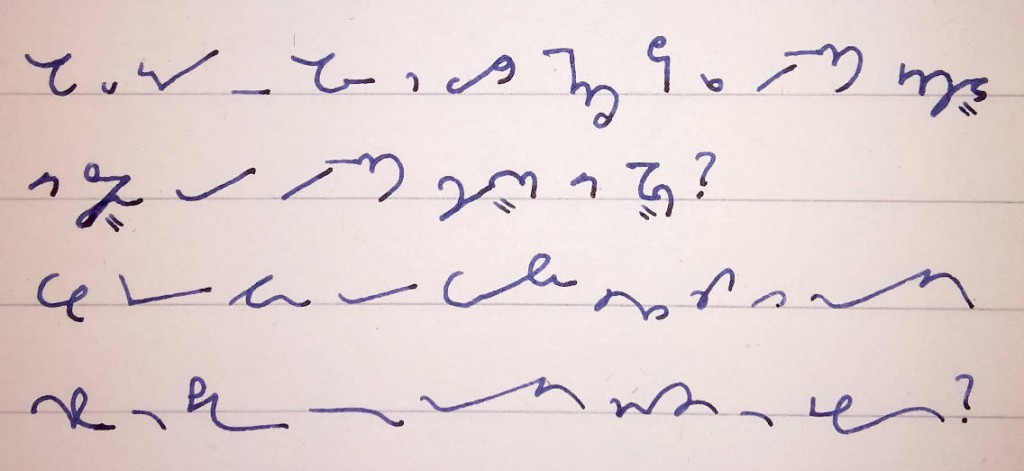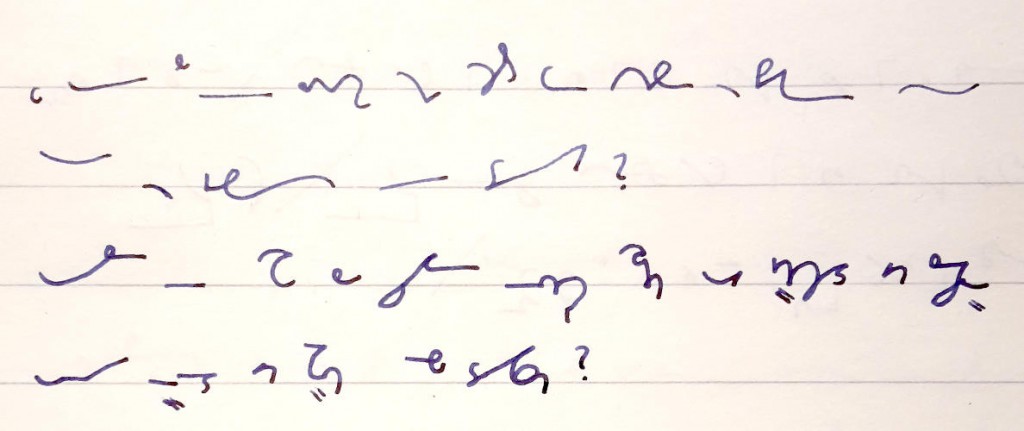On the Shorthand Reddit, user journalizing asked me: “Will you ever do wild and crazy things such as writing English in Stiefo or writing German in Teeline?”
So I did. 😉

My Teeline is not very efficient and brief right now. I’m aware that there are abbreviations for e.g. “-ing”, but I’m just not there yet.
The Stiefo is “written as it sounds”: Wil ju ewer du weild things satsch äs reiting inglisch in stifo or reiting tschermen in tilein? You could argue to write “German” as tschörmen, but that’s a little bit more inconvenient.
Now, the other way round:

Poor silly me has forgotten the “wild and” part. But now I’m too lazy to fix that. 😉 “Translating” the German sentence to English was a bit difficult because I’m not so sure how a English native speaker would write down the German text, and because Teeline lacks the German „ch“ sound. (Whereas Stiefo has a proper TH.) I’ve written CH, which fails to even come close… Wrst do ml so frct dnge mchn wi Englsh in Stfo odr Dtsh in Tln tsu shrbn?
You might get a little idea about the different approaches of Teeline and Stiefo for reducing the amount of shapes to write. Teeline eliminates almost all vowels but keeps the consonants. Stiefo doesn’t eliminate as much – mainly flection endings, and certain consonants (like r, l, n) from clusters. One example of this is the last word schreiben, which is reduced to scheib. However, vowels are often written explictly (like the ei in that scheib) or implicitly (like in the first word wirst, which is reduced to a small hook in the i position). Common pre- and suffixes and short words are usually reduced to just a vowel or a vowel and consonant, e.g. -isch as -i, or deutsch (second line, first word) as a d that is written wide and in the top position to remind of the eu vowel (written as a wide join a full step up).